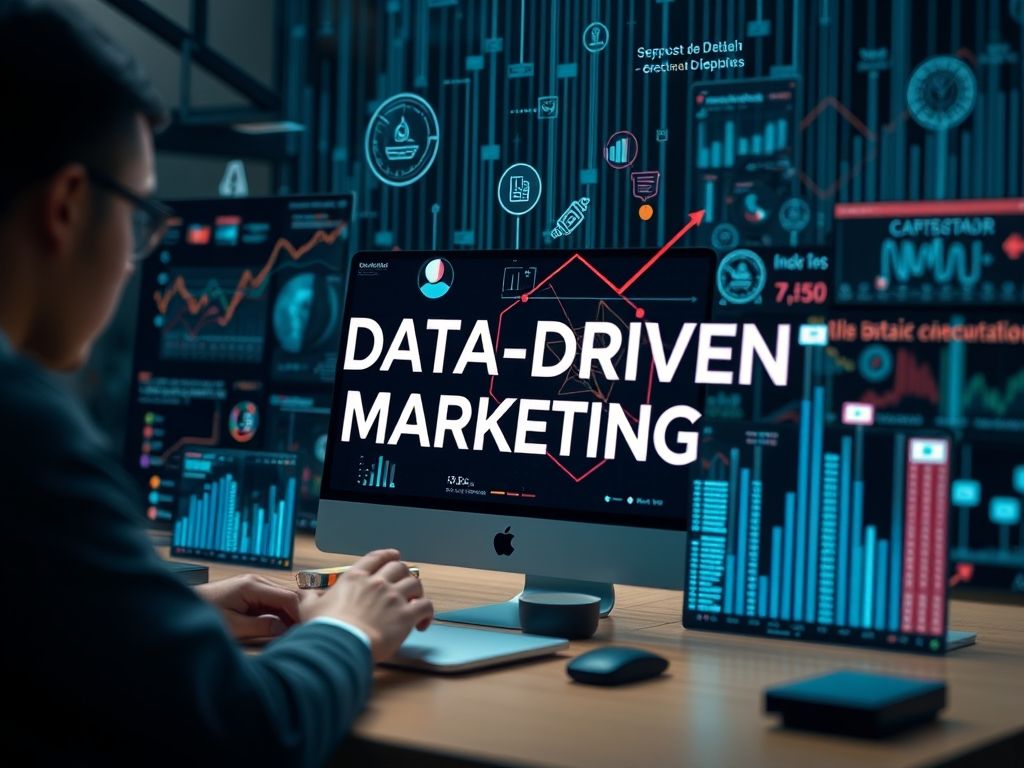Understanding Data-Driven Marketing
Data-Driven Marketing refers to the strategy of using data to guide marketing decisions. This approach leverages customer data, analytics, and metrics to create targeted marketing campaigns that are more likely to resonate with the audience. By analyzing data, businesses can understand customer behaviors, preferences, and trends, allowing for efficient allocation of resources and tailored messaging.
The Importance of Data-Driven Marketing
In today’s digital landscape, where consumers are bombarded with information, Data-Driven Marketing has become essential for businesses aiming to stand out. Using data helps organizations:
- Enhance Customer Experience: Personalization leads to better engagement.
- Optimize Marketing Spend: Data reveals the most effective channels.
- Measure Performance: Analytics provide insights into campaign effectiveness.
- Predict Trends: Historical data can forecast future customer behaviors.
Understanding these aspects helps businesses navigate the complexities of consumer demand effectively.
Key Components of Data-Driven Marketing
Implementing a successful Data-Driven Marketing strategy involves several critical components:
- Data Collection: Gathering data from various sources like CRM, social media, and website analytics.
- Data Analysis: Utilizing analytics tools to interpret data and derive actionable insights.
- Segmentation: Dividing customers into specific groups based on their behaviors or demographics.
- Personalization: Tailoring marketing messages and offers to individual customer preferences.
- Performance Tracking: Continuously monitoring campaign results to refine strategies.
Each of these components plays a vital role in ensuring that marketing efforts are effective and informed by real-world data.
Applications of Data-Driven Marketing in Real Life
Data-Driven Marketing can be applied across various sectors. Here are some practical examples:
- E-commerce: Retailers use browsing history and purchase data to recommend products.
- Email Campaigns: Personalized emails based on user behavior lead to higher open rates.
- Social Media Advertising: Targeted ads based on demographic data improve conversion rates.
- Content Marketing: Analyzing engagement metrics helps businesses create content that resonates with their audience.
These applications demonstrate how businesses can harness data to create impactful marketing strategies.
How to Implement Data-Driven Marketing in Your Strategy
To effectively incorporate Data-Driven Marketing into your marketing strategy, follow these steps:
- Define Goals: Establish what you want to achieve with your marketing efforts.
- Choose Data Sources: Identify where you will collect your data from.
- Invest in Analytics Tools: Utilize tools like Google Analytics, HubSpot, or Tableau to analyze data.
- Segment Your Audience: Use data to create detailed customer profiles.
- Test and Optimize: Implement A/B testing to refine your marketing messages.
By following these practical steps, businesses can leverage data to enhance their marketing effectiveness.
Related Concepts to Data-Driven Marketing
Understanding Data-Driven Marketing also involves recognizing related concepts:
- Big Data: Refers to large volumes of data that can be analyzed for insights.
- Predictive Analytics: Uses historical data to predict future trends.
- Customer Relationship Management (CRM): Systems that help manage customer interactions and data.
- Marketing Automation: Tools that streamline marketing processes through data.
These concepts work hand-in-hand with Data-Driven Marketing, providing a broader understanding of the marketing landscape.
Conclusion: The Future of Data-Driven Marketing
As we move forward in the digital age, the importance of Data-Driven Marketing cannot be overstated. It empowers businesses to make informed decisions, connect with their audience on a deeper level, and ultimately drive growth. For marketers, understanding and implementing this approach is not just beneficial; it is essential for survival in a competitive market.
Reflect on how you can leverage data in your marketing strategy. Start small, test different approaches, and watch as your efforts yield significant results.









